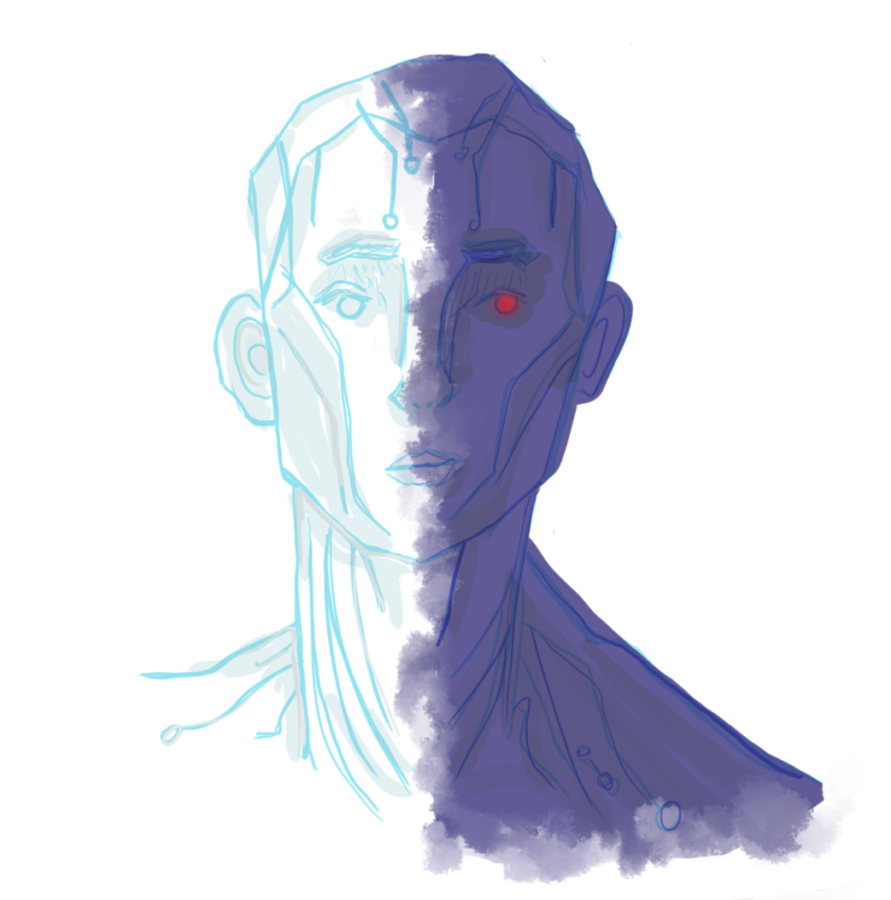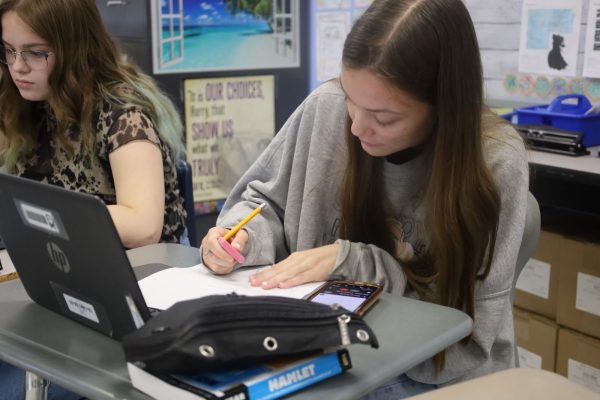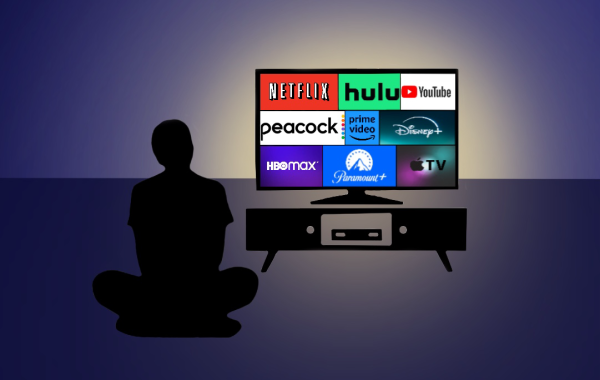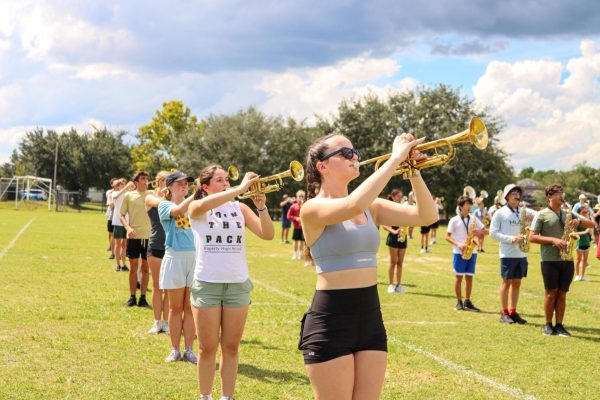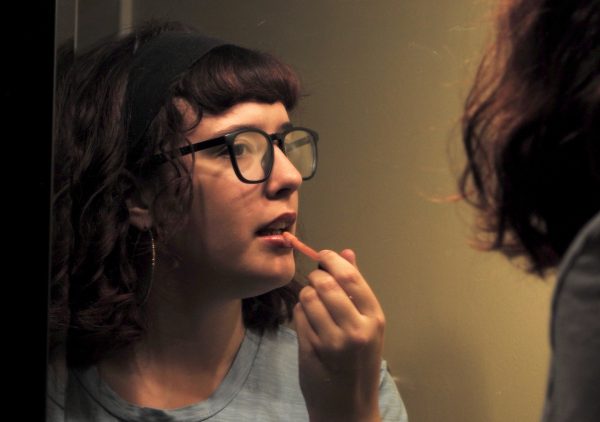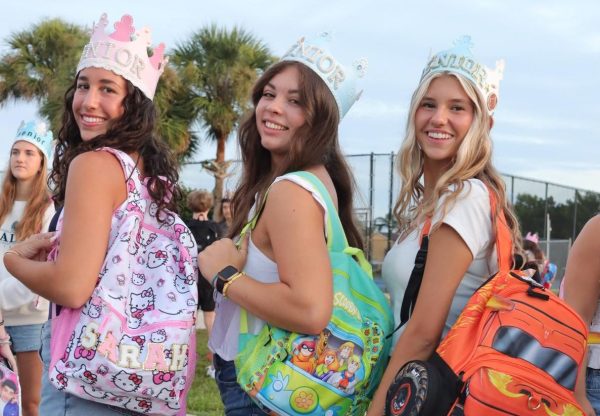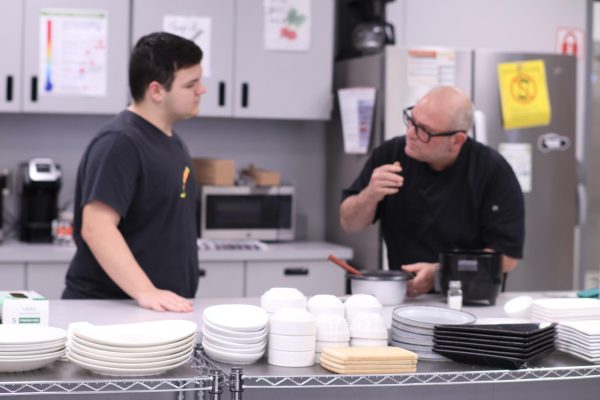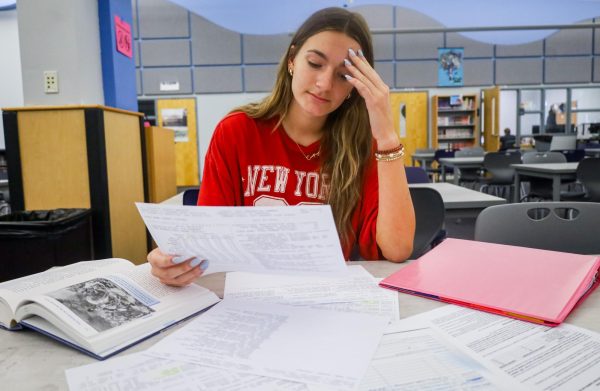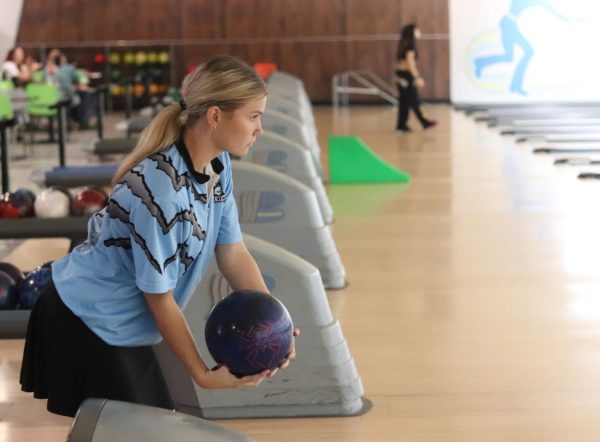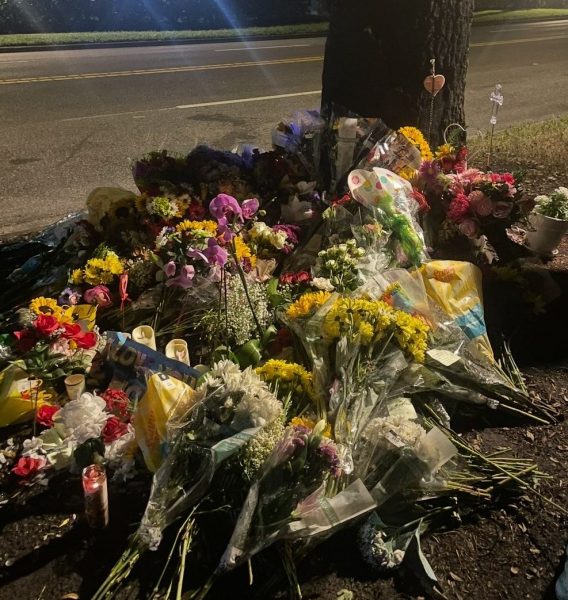ChatGPT: a new age of cheating
ChatGPT, an AI-powered chatbot, has raised concerns among students and teachers for its cheating capabilities
photo by Josephine Lim
The exponential growth of AI in recent years has sparked curiosity and concern all over the world. ChatGPT, the latest development in AI, worries students and teachers about its impact on education.
When English teacher Sarah Bearss first heard about ChatGPT, one thought appeared in her mind: “Oh, great.”
Released in November by OpenAI, ChatGPT is an AI-powered chatbot that can generate conversational answers to users’ questions. Utilizing an extensive knowledge base of online sources, ChatGPT attracted more than a million users just a few days after its launch. Its skills range from writing essays about Shakespeare’s “Macbeth” to writing code in Java, drawing curiosity from students and concern from teachers.
“[ I thought] ‘Another way for kids to cheat,’” Bearss said. “I think it’s really cool software and really cool technology, but I worry that kids are going to forget how to learn because they don’t want to do the work themselves.”
Bearss’ concern is growing among her fellow teachers and the education community at large. Most notably, the New York City school system banned the use of ChatGPT earlier this month for fear of cheating. However, students can still access ChatGPT at home or on devices not linked to the school system, an unavoidable flaw in the school’s ban. Although Seminole County has not released any information pertaining to ChatGPT, the thought of a possible ban has been on Bearss’ mind.
“We can limit their technology use in our classrooms, but when [our students] leave our room, we can’t control what they do,” Bearss said. “[We are] trying to encourage kids to learn to think smarter, not harder, but also encouraging original and abstract thinking because it’s the original and abstract thinking that created the AI in the first place, and we don’t want to lose that.”
When Bearss herself experimented with ChatGPT, she noted that the bot did well on surface-level questions like summaries, but struggled with higher-level questions with critical thinking and personal opinion involved.
“It would be a bit easier to recognize cheating [in higher-level writing], especially if students aren’t particularly strong writers,” Bearss said. “It would stand out that the writing looked different than what they normally produce.”
Math teacher Dan Conybear also expressed his concerns over cheating, but admitted that there is little teachers can do to prevent it.
“Calculators were advanced technology when I was in school. And it’s only changed and increased,” Conybear said. “I don’t think you can put it back in the bottle. I think technology is only going to progress and we, as a society, will have to adapt to it.”
For now, both Bearss and Conybear simply plan to restrict technology use during tests, make several different test versions and encourage their students to see the value in learning.
“High school kids are resourceful. If it’s out on the web, they’ll find a way to use it to make life easier or to get better grades,” Conybear said. “My hope is they also use it to broaden their knowledge, and the learning can go along with better grades.”
When Susan*, a senior, first heard about ChatGPT, she decided to give it a try on her economics homework. Busy with her extracurriculars and upcoming exams, Susan typed her homework problems into ChatGPT and turned it in, receiving a 100 on the assignment.
“I thought, ‘Even if I bomb all my tests, I’m still going to get an A in the class so I don’t need to put in a lot of mental energy into learning this material,’” Susan said.
Although ChatGPT has the ability to help students cheat, it is also a sign of the immense strides technology has made in recent decades. As an aspiring aerospace engineer, junior Mohanashree Pamidimukkala is eager to see what AI can bring to the world, especially in the field of space exploration.
“I’m actually doing my AP research project on machine learning. I was looking at how a satellite can identify the coordinates of the space debris that it sees so it can dodge it, and obviously a human can’t do that,” Pamidimukkala said. “So AI is definitely helpful for things like that, and I’m excited to see what direction it goes in the future.”
Bearss agrees, recalling her college days at the University of Central Florida, where education majors were trained with AI students.
“AI can give the opportunity for more or different kinds of hands-on learning,” Bearss said. “When I was in college, teachers could practice with an AI student and the AI student would ask them questions and have problems and interrupt them when they were talking. I imagine that [the future of AI] is going to look something like teachers having to learn how to use AI and use it with purpose in their classrooms.”
Despite the massive attention AI has garnered, it still has its shortcomings. On its site, OpenAI warns ChatGPT may occasionally generate incorrect information, produce harmful instructions or biased content and have limited knowledge of the world and events after 2021.
Even the bot acknowledges its own limitations when asked the question, “Will robots take over the world?”
“It is important to recognize that AI is still in the early stages of development and it is unlikely that robots will be able to fully ‘take over the world’ in the near future,” ChatGPT said. “While AI has made significant progress in recent years, it still has limitations and is not yet capable of replacing humans in many tasks.”
Currently, ChatGPT is free to all for research purposes, but will likely not remain that way due to ChatGPT’s maintenance costs. Users will most likely be required to pay a fee to use the application, a potential hindrance to students who use the bot for homework answers. For now, Frasca hopes students will see the importance in using their own mind to learn.
“Technology is a double-edged sword in so many ways. It’s great because it makes our life easier. But sometimes it makes us lazy,” Frasca said. “It has been a constant challenge for educators to balance the use of technology and all these cool tools that can help us, but also making sure that kids know the basic skills that they need to be successful in life too.”
With the inevitable advancement of new technologies and inventions, educators like Bearss, Conybear and Frasca know they can only wait and adapt.
“I feel like we need to embrace technology. Maybe not totally, and maybe small steps at a time, but I do think it needs to be embraced because it’s the future,” Bearss said. “If we don’t embrace it, we’re just going to fall behind everybody else.”
*names changed for privacy
Your donation will support the student journalists of Hagerty High School. We are an ad-free publication, and your contribution helps us publish six issues of the BluePrint and cover our annual website hosting costs. Thank you so much!


